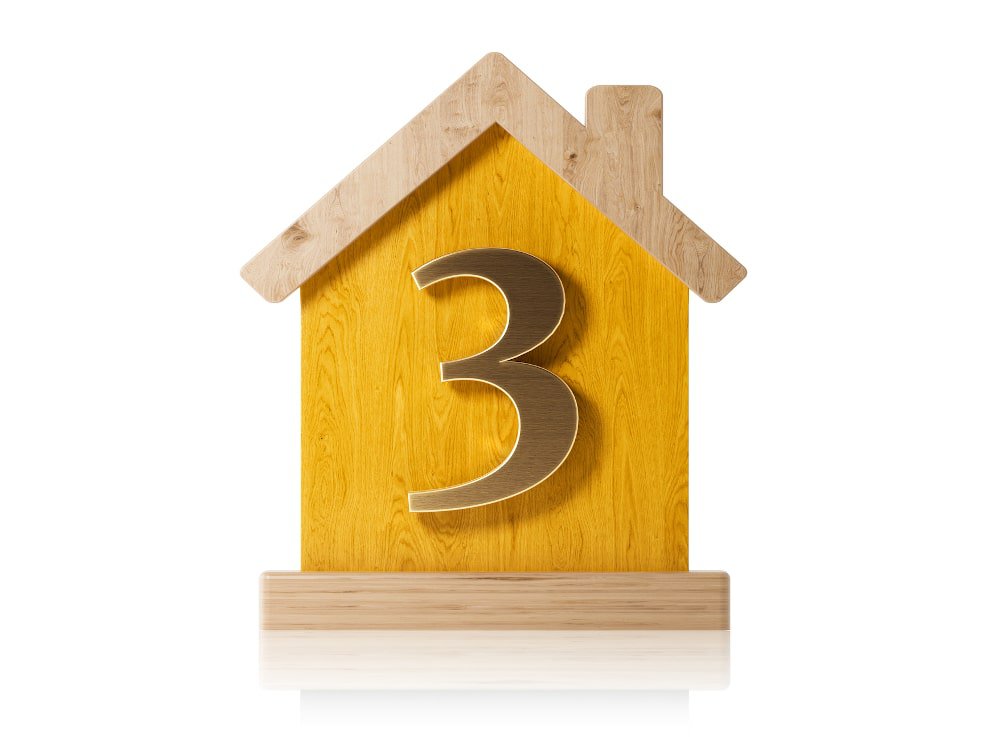Can You Get a Third Mortgage? A Comprehensive Guide on the Risks

A third mortgage allows homeowners to leverage additional home equity for funds, but it comes with higher risks and costs. This guide explores third mortgages, their pros and cons, and whether they’re the right financial decision.
Key Takeaways
- Third Mortgage: A loan taken after the first and second mortgages, using home equity as collateral, typically offered by private lenders.
- Pros: Provides access to additional funds, allows for debt consolidation, and can finance home improvements.
- Cons: Involves higher interest rates, increased financial risk, and limited lender options compared to first and second mortgages.
- Eligibility Factors: Credit score, income, home equity, and property value influence approval chances.
- Alternatives: Consider options like Home Equity Line of Credit (HELOC), refinancing, or personal loans before opting for a third mortgage.
Did you know that approximately 15% of Canadian homeowners have considered taking out a third mortgage? This surprising statistic highlights the growing interest in leveraging home equity, but it also raises important questions about the risks and benefits of such a financial decision.
As Steven Tulman, President & Principal Broker of Clover Mortgage, I've seen firsthand the impact of third mortgages on homeowners' financial situations. In this comprehensive guide, we'll explore the ins and outs of third mortgages, helping you make an informed decision about whether this option is right for you.
Understanding Third Mortgages
A third mortgage is a loan that comes after your first and second mortgages, using your home as collateral. It’s essentially a way to tap into your home’s equity for additional funds. But before we dive deeper, let’s clarify what a third mortgage actually is:
“A third mortgage is a loan wherein the principal provided by the lender is based on the value of the property and the equity that the borrower holds. Since this is the ‘third’ mortgage though, it is subordinate to the first mortgage and the second mortgage and comes in third position behind the second mortgage.” - Linda Mac, Underwriter & Mortgage Agent Level 2 , M17001322
This means that in the event of a default, the first and second mortgages will be paid off first from the proceeds of any potential power of sale, and the third mortgage lender will be paid off if there is enough available.
Key Features of Third Mortgages
- Subordinate to first and second mortgages
- Based on home equity
- Higher interest rates than first or second mortgages
- Typically offered by private lenders rather than traditional banks
Can You Get a Third Mortgage in Canada?
The short answer is yes, you can get a third mortgage in Canada. However, it’s not as straightforward as obtaining a first or second mortgage. A home equity loan, unlike a third mortgage, uses the available equity in a home as collateral and is given to the borrower as a lump sum of cash. Here are some factors that affect your eligibility:
- Credit score
- Income and debt-to-income ratio
- Home equity
- Property value and location
Lender Policies and Restrictions
It's important to note that traditional lenders such as banks, trust companies, and credit unions typically don't offer third mortgages. Even institutional private mortgage lenders like MICs (Mortgage Investment Corporations) and mortgage funds are often hesitant to provide third mortgages due to the increased risk.
The Process of Obtaining a Third Mortgage
If you're considering a third mortgage, here's a general overview of the process:
- Assess your financial situation
- Research and find lenders who offer third mortgages
- Gather necessary documentation
- Submit your application
- Property appraisal and underwriting
- Closing procedures
Learn more about the mortgage application process
Pros and Cons of Getting a Third Mortgage
Like any financial decision, third mortgages come with both advantages and disadvantages. Let's break them down:
Advantages
- Access to additional funds
- Potential for debt consolidation
- Home improvement financing
- Financial flexibility
Disadvantages
- Higher interest rates
- Increased financial risk
- Potential for negative equity
- Limited lender options
- Higher fees
Comparing Third Mortgages to Other Options
To help you understand how third mortgages stack up against other financing options, let’s look at this comparison table:
| Feature | Third Mortgage | Home Equity Line of Credit (HELOC) | Personal Loan |
|---|---|---|---|
| Interest Rate | High | Moderate | Varies |
| Collateral Required | Yes | Yes | No |
| Lump Sum Payment | Yes | No (revolving credit) | Yes |
| Repayment Terms | Fixed | Flexible | Fixed |
| Impact on Home Equity | High | Moderate | None |
Explore more about HELOCs vs refinancing vs second mortgages
When comparing mortgage interest rates, third mortgages often have higher rates than second mortgages provided by private lenders such as MICs, mortgage funds, and institutional alternative lenders (B lenders). The monthly payments for third mortgages can be comparable to those of traditional amortized first mortgages, depending on credit history, income, and the qualification process.
Assessing the Risks of a Third Mortgage
While third mortgages can provide access to additional funds, they come with significant risks that shouldn't be overlooked:
- Financial Overextension : Taking on a third mortgage means you'll be responsible for three separate monthly mortgage payments.
- Risk of Default : If you can't keep up with payments, you could face foreclosure.
- Market Risks : Property value fluctuations could lead to negative equity.
- Long-term Financial Implications : High interest rates can significantly increase your overall debt load.
When Might a Third Mortgage Be Appropriate?
Despite the risks, there are situations where a third mortgage might be a viable option:
- Emergency situations requiring immediate funds
- Investment opportunities with high potential returns
- Debt consolidation to lower overall interest payments
- Major home renovations that will significantly increase property value
Find out more about when it's a good idea to refinance your mortgage
Alternatives to Third Mortgages
Before committing to a third mortgage, it's worth exploring other options:
- Home Equity Line of Credit (HELOC) : Offers more flexibility and potentially lower interest rates.
- Refinancing Existing Mortgages : Could provide access to funds at lower interest rates.
- Personal Loans : This may be a better option for smaller amounts.
- Reverse Mortgages : An option for seniors to access home equity without monthly payments.
Tips for Managing Multiple Mortgages
If you do decide to proceed with a third mortgage, here are some strategies to help manage your finances:
- Create a detailed budget and stick to it
- Prioritize mortgage payments
- Look for ways to increase your income
- Consider accelerated payment options to pay down debt faster
- Regularly review your financial situation and adjust as needed
Check out our mortgage payment calculator to help with budgeting
Legal and Tax Considerations
It's crucial to understand the legal and tax implications of a third mortgage:
- Mortgage regulations in Canada may affect your ability to obtain a third mortgage
- There may be tax implications, particularly if you're using the funds for investment purposes
- Always consult with a legal and financial professional before proceeding
Third Mortgages in Action
Let's look at two scenarios to illustrate the potential outcomes of taking on a third mortgage:
Example 1: Successful Use of a Third Mortgage
John and Sarah took out a third mortgage to fund a major home renovation. The improvements increased their property value significantly, allowing them to refinance all three mortgages into a single, lower-interest loan within two years.
Example 2: Cautionary Tale
Mike used a third mortgage to consolidate high-interest credit card debt. However, he continued to accumulate credit card debt and eventually struggled to make payments on all three mortgages, putting his home at risk of foreclosure.
Can you get a third mortgage in Canada?
Yes, you can get a third mortgage in Canada, but it’s less straightforward than obtaining a first or second mortgage. Approval depends on factors like credit score, income, home equity, and property value, with private lenders typically offering these loans.
How Clover Mortgage Can Help
At Clover Mortgage, we specialize in complex mortgage situations. Our team of experts can:
- Provide personalized advice based on your unique financial situation
- Help you explore all available options, including alternatives to third mortgages
- Connect you with our network of lenders, including those who specialize in third mortgages
- Guide you through the application process and help you understand all terms and conditions
Learn more about why you should use a mortgage broker
Comparing Third Mortgage Lenders
When considering a third mortgage, it's crucial to compare different lenders. Here's a general comparison of what you might expect:
| Feature | Private Lenders | Alternative Lenders | Credit Unions |
|---|---|---|---|
| Interest Rates | Highest | Moderate to High | Moderate |
| Lending Criteria | Most Flexible | Somewhat Flexible | Stricter |
| Processing Time | Fastest | Moderate | Slowest |
| Processing Time | Fastest | Moderate | Slowest |
| Loan Amounts | Varies | Moderate | Usually Lower |
| Fees | Highest | Moderate | Lowest |
Remember, these are general comparisons and can vary based on individual lenders and your specific financial situation.
Conclusion: Is a Third Mortgage Right for You?
Deciding whether to take on a third mortgage is a significant financial decision that shouldn't be taken lightly. While it can provide access to additional funds, it also comes with increased risks and costs.
Before proceeding, ask yourself:
- Do I really need these additional funds?
- Can I comfortably manage three mortgage payments?
- Have I explored all other options?
- Do the potential benefits outweigh the risks in my situation?
Ultimately, the decision to get a third mortgage should be based on a thorough assessment of your financial situation, future goals, and risk tolerance. At Clover Mortgage, we're here to help you navigate this complex decision and find the best solution for your unique needs.
Remember, your home is likely your most valuable asset. Any decision that puts it at risk should be made carefully and with expert guidance. Don't hesitate to reach out to us for a personalized consultation. We're here to help you make the best decision for your financial future.
Frequently Asked Questions
What loan-to-value ratio is typically required for a third mortgage?
Third mortgages often require a lower loan-to-value ratio compared to first or second mortgages. Generally, lenders may consider a loan-to-value ratio of up to 75-85% for a third mortgage, depending on other factors such as credit history and income.
How can a mortgage broker help with obtaining a third mortgage?
A mortgage broker can be invaluable when seeking a third mortgage. They have access to a wide network of lenders, including those specializing in third mortgages. Brokers can help you navigate the complex process, compare options, and find the best mortgage solution for your situation.
How much home equity is typically needed for a third mortgage?
Lenders usually require significant equity for a third mortgage. You may need at least 15-25% equity in your home after accounting for all three mortgages. This ensures there's sufficient equity to protect the lender's investment.
How important is credit history when applying for a third mortgage?
While credit history is important, it may be less crucial for third mortgages compared to first or second mortgages. Private lenders, who often provide third mortgages, may be more flexible with credit requirements. However, better credit history can help you secure more favourable terms.
Can unsecured debt be consolidated with a third mortgage?
Yes, consolidating unsecured debt is a common reason for obtaining a third mortgage. By converting high-interest unsecured debt into a secured mortgage, you may be able to reduce your overall interest payments and simplify your debt management.
How do interest rates for third mortgages compare to first mortgages?
Interest rates for third mortgages are typically higher than those for first mortgages. This is due to the increased risk for the lender, as they would be third in line to recoup their investment in case of default.
Is mortgage refinancing a better option than taking out a third mortgage?
Mortgage refinancing can often be a better option if you qualify. It typically offers lower interest rates than a third mortgage and simplifies your debt structure. However, if you don't qualify for refinancing due to credit issues or insufficient equity, a third mortgage might be a viable alternative.
How much equity is considered sufficient for a third mortgage by second mortgage lenders?
Second mortgage lenders who also offer third mortgages typically look for at least 20-25% equity remaining after all three mortgages. However, this can vary depending on the lender and your overall financial profile.
Is mortgage insurance required for a third mortgage?
Mortgage insurance is typically not available for third mortgages. These loans are considered higher risk and are usually not backed by mortgage insurance providers like CMHC.
What's the minimum credit score needed for a third mortgage?
While there's no set minimum, a credit score of at least 600 is often preferred. However, some private lenders may consider lower scores if other factors are strong, such as significant equity or high income.
Is a down payment required for a third mortgage?
A traditional down payment isn't required for a third mortgage since you're borrowing against your home's existing equity. However, you need to have sufficient equity in your home to qualify.
How does an existing mortgage affect my ability to get a third mortgage?
Existing mortgages impact your debt-to-income ratio and the available equity in your home. Lenders will consider the balances and payments of your existing mortgages when determining if you qualify for a third mortgage.
What total debt service ratio is acceptable for a third mortgage?
While it can vary by lender, a total debt service ratio of 50% or less is often preferred for third mortgages. However, some private lenders may be more flexible if other factors are strong.
Can a mortgage specialist provide a better mortgage solution than a traditional bank?
Yes, a mortgage specialist or broker often has access to a wider range of lenders and products than a traditional bank. They can provide tailored solutions, especially for complex situations like third mortgages.
How does an existing second mortgage impact getting a third mortgage?
An existing second mortgage reduces the available equity for a third mortgage and increases your debt load. This can make it more challenging to qualify for a third mortgage, but it's not impossible with the right lender.
Can car loans be consolidated into a third mortgage?
Yes, car loans can be consolidated into a third mortgage. This can potentially lower your overall interest rate and monthly payments, but remember you're converting unsecured debt into debt secured by your home.
What happens if a borrower defaults on a third mortgage?
If a borrower defaults on a third mortgage, the lender can initiate foreclosure proceedings. However, they would only receive funds after the first and second mortgages are paid off, which is why third mortgages are considered higher risk.
How can I consolidate debt with a third mortgage?
A third mortgage can be used to consolidate high-interest debts like credit cards or personal loans. By doing so, you may be able to lower your overall interest rate and monthly payments. However, it's crucial to address the root causes of debt to avoid accumulating more in the future.





